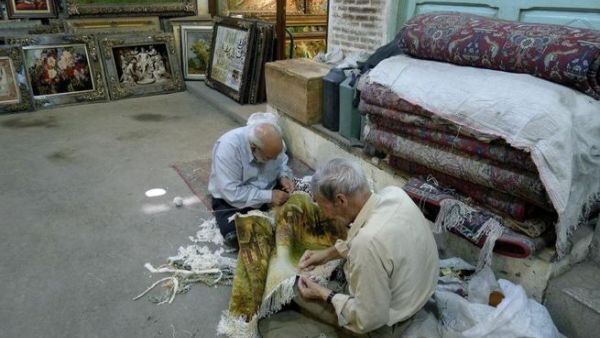Fresh Western sanctions targeting industries in Iran have led to concern over an impending humanitarian crisis in the country, AP reported on Tuesday.
Many Iranians now find black market dealers are the only way to get vital drugs, which are in limited supply because of sanctions against the country’s nuclear program.
Even basics, such as powdered milk, are reportedly unavailable in some pharmacies.
The sanction are combined with a spiraling currency, making it harder for low-income Iranians to afford basic medicines, despite Iran's claims it had circumvented sanctions through oil sales.
While the Iranian government and aid agencies have called on international authorities to ease sanctions to let medical supplies enter the country, Iranian officials have also laid some of the blame at President Mahmoud Ahmadinejad’s door.
Marzieh Vahid Dastjerdi, Iran's former health minister, was dismissed in December for criticising the government over a lack of spending on healthcare, and medical colleges across the country have sent the President letters warning of a possible crisis.
“Lack of purchase power to obtain medical equipment and discontent of patients and hospital staff could lead to student protests, too,” one of the letters read.
A letter from the Iranian Hemophilia Society to the World Health Organization in July warned that sanctions had “seriously endangered the lives of tens of thousands of patients, particularly children, suffering from special diseases.”
A new round of sanctions imposed by the U.S. in January have drawn criticism for targeting industries.
Despite not directly targeting medical supplies, sanctions have badly affected the health care system at every level, leading to overcrowding and long waits at state-run hospitals.
"Sometimes we don't even have serum for dehydrated patients”, one doctor told AP news agency. A round of chemotherapy now reportedly costs $65,000, while increases of more than 200 percent for radiology and dialysis equipment are common.








